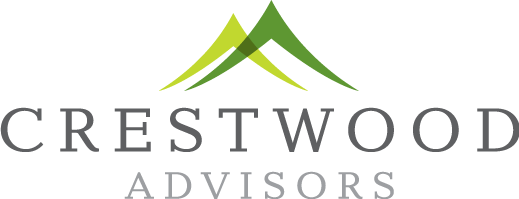As we approach year end, this guide highlights essential financial considerations, offering actionable steps and practical advice to help secure your family’s financial well-being.
Smart Tax Planning Strategies
Year-end tax planning can yield substantial savings for families who take a proactive approach.
- Charitable giving can play a crucial role in tax planning. Consider a Donor Advised Fund (DAF) to bunch multiple years’ worth of charitable contributions into a single tax year to maximize the benefit of itemizing deductions.
- If you are over 70½, qualified charitable distributions (QCDs) from IRAs of up to $105,000 per individual or $210,00 for a married couple filing jointly can satisfy required minimum distributions (RMDs) while providing tax advantages.
- Consider a Roth Conversion to convert IRA dollars into Roth dollars which will grow tax free going forward.
Estate Planning for Family Security
Estate planning extends far beyond a simple will creation. A comprehensive estate plan ensures your assets are distributed according to your wishes while minimizing tax implications for your heirs.
- Review and update wills and other directives.
- Check beneficiary designations on retirement accounts and life insurance, including contingent beneficiaries.
- Consider establishing or updating trusts (especially considering state estate taxes).
- Review powers of attorney and healthcare directives.
- Evaluate gifting strategies for tax efficiency.
- Consider charitable giving vehicles.
Maximizing Retirement Security
Now is the time to review your contribution levels to workplace retirement plans and Individual Retirement Accounts (IRAs). In November, the IRS announced a significant changes for 2025, including raising the limits for catch up contributions for workers age 60 to 63.
- If you are not maxing out your 401(k), at a minimum, ensure you are contributing enough to receive your employer’s maximum matching contribution.
- If you have set a fixed contribution amount, review and adjust your contributions for 2025 to ensure you reach new annual limits.
- 401(k): $23,500 ($31,000 for those 50 and older and $34,750 for those age 60 to 63)
- IRA: $7,000 ($8,000 for those 50 and older)
- Consider making these as Roth contributions if your future income/taxes will be higher.
- Review investment allocations to ensure they align with your risk tolerance and timeline.
Secure Your Family’s Future Through Insurance
Insurance coverage forms a crucial part of your family’s financial safety net. The end of the year presents an ideal time to review your insurance policies and ensure they still align with your family’s needs.
- Life insurance coverage should reflect your current family situation, including any changes in dependents, income, or debt obligations.
- Health insurance decisions take on particular importance during open enrollment periods. Consider whether your current health plan still offers the most cost-effective coverage for your family’s medical needs.
- Consider maxing out contributions to a tax-efficient HSA plan if you are eligible ($4,300 for an individual or $8,550 for a family in 2025).
- Often overlooked, long-term disability insurance, deserves consideration as it protects your income should you become unable to work.
Strategic Debt Management
In today’s dynamic interest rate environment, smart debt management can significantly impact your family’s financial health.
- Review all outstanding debts, from mortgages to credit cards, for opportunities to reduce interest costs through refinancing or consolidation.
- If you have high levels of consumer debt, consider creating a structured debt repayment strategy that balances aggressive debt reduction with other financial priorities.
- Mortgage holders should evaluate whether current rates and terms still serve their best interests.
Remember that not all debt is created equal – focus first on eliminating high-interest consumer debt while maintaining strategic use of lower-cost debt that might offer tax advantages.
Education Planning using 529 accounts
Saving for education can help prepare bright young minds for a fulfilling future career. If you plan to help fund the cost of a university degree, consider the following:
- Review contribution limits and state tax benefits.
- The 2024 Federal Gift Tax Exemption is $18k per giver, per receiver (a couple can gift $36k to a child’s 529 plan). This increases to $19k in 2025.
- Consider front-loading 529 plan contributions (up to five years-worth all at once). Please consult with your tax accountant on how to report these contributions.
- Evaluate investment allocations based on children’s ages.
- Explore options for unused 529 funds, including transfers to siblings or a Roth IRA.
Emergency Fund Assessment
A cornerstone of any sound financial strategy remains a robust emergency fund. While the traditional advice of saving three to six months of essential expenses holds true, today’s higher interest rates present a nice opportunity. High-yield savings accounts offer the opportunity to earn meaningful returns while maintaining liquidity.
Family Financial Communication
An open dialogue about family finances builds stronger financial futures for the next generation. Set aside time for family financial discussions, adapting the conversation to include children at age-appropriate levels. These discussions can cover everything from daily spending decisions to long-term financial goals.
- Schedule quarterly or semi-annual family budget reviews.
- Use age-appropriate financial language for children:
- Ages 5-10: Basic saving and spending concepts, including giving
- Ages 11-15: Introduction to investing and compound interest
- Ages 16+: Credit, college planning, Estate planning basics
- Discuss family values and money relationships.
- Plan family philanthropy initiatives.
- Create financial responsibility transition plans for teens.
- Review family business succession planning if applicable.
Take Action
Successful financial planning requires taking concrete steps toward your goals. Begin by making any necessary year-end contributions or adjustments to investment accounts. Update important documents and beneficiary designations. Set specific, measurable financial goals for the upcoming year. Finally, consider where Crestwood’s professional financial guidance might help you navigate complex financial decisions.
Remember, financial planning is an ongoing journey, not a destination. Regular reviews and adjustments will help ensure your family remains on track to meet both immediate needs and long-term aspirations.




